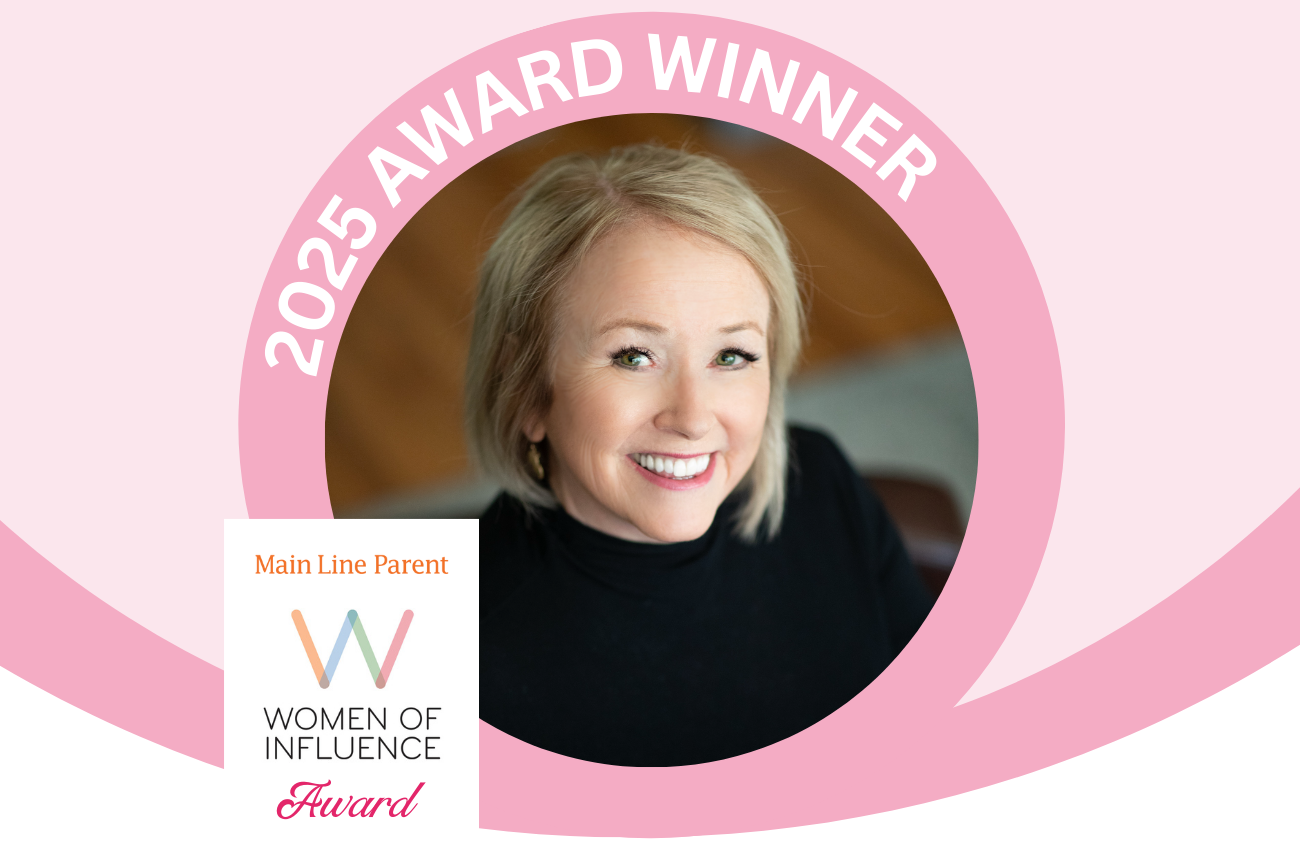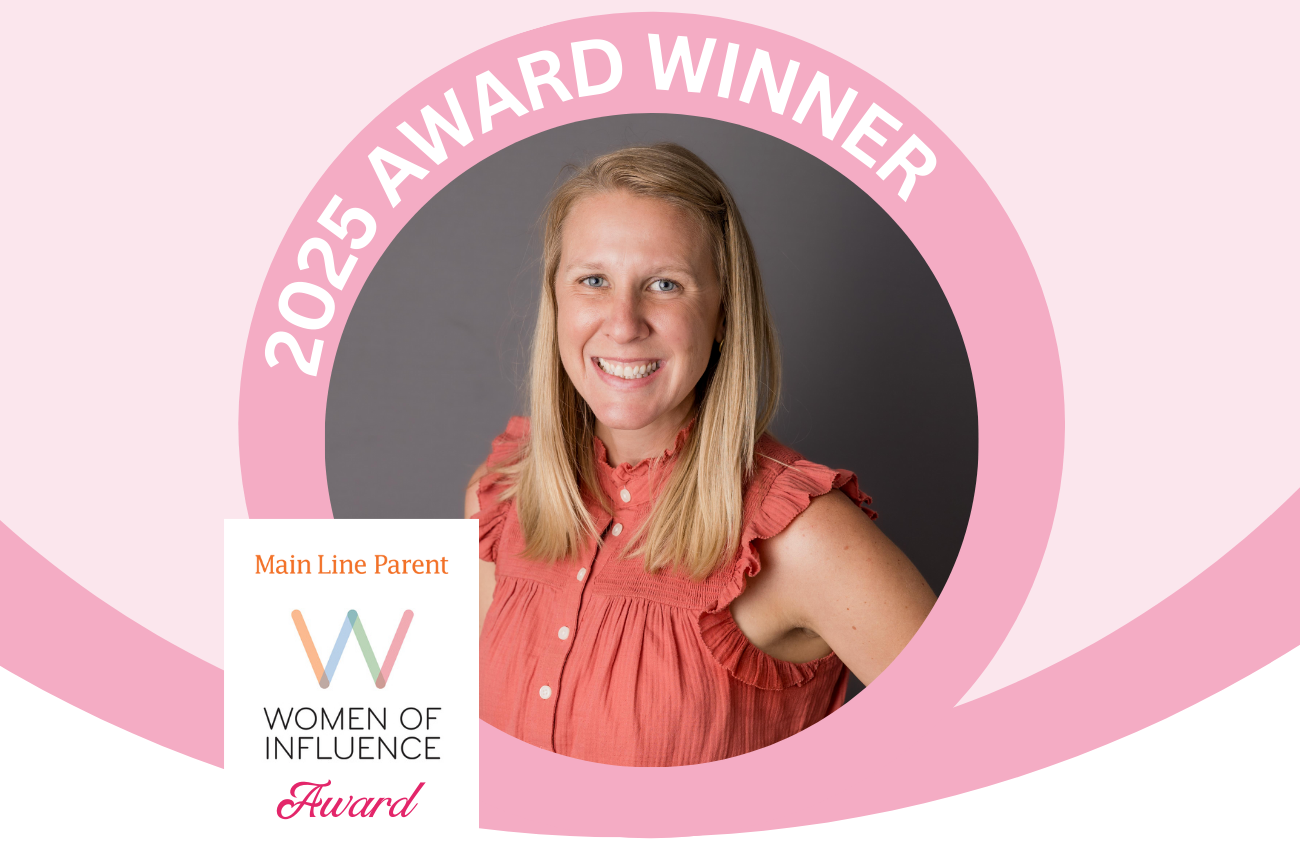Georgette Kerr: Three Decades of Nurturing New Families—A Pioneer in Postpartum Care
When other doulas said "no overnights," Georgette Kerr said "yes"—and built a revolutionary approach to postpartum care that has supported over a thousand families across the Philadelphia area.

Georgette Kerr didn’t set out to revolutionize postpartum care when she started working with families in 1998. But as the founder and owner of After the Stork, she has done exactly that, building a team of 45 dedicated doulas while maintaining her hands-on role as the voice new parents hear when they call for help. At a time when most people her age are considering retirement, Georgette continues taking client calls, conducting interviews, and mentoring the next generation—including her two daughters, Ashley and Allison. Ashley now serves as General Manager and has become her trusted advisor on everything from scheduling challenges to sensitive client situations. Allison is an IBCLC and offers her assistance with After the Stork clients when she is needed.
Georgette Kerr is a 2025 Main Line Parent Women of Influence Award Winner
Main Line Parent’s Women of Influence Awards celebrate exceptional women making significant impacts in our community. Georgette was nominated by her daughter and coworker, Ashley Morrison, and selected based on her achievements and dedication to creating positive change in her community. Each Women of Influence Award Winner has committed to support Family Focus Media’s core values. Together, we are committed to foster a sense of belonging and empowerment for all families. All backgrounds, races, genders, and sexual orientations are welcome and safe with us.
Beyond the awards, our Women of Influence Luncheons and Speed Networking Night attendees come together as our Women of Influence Network, a community fostering connections, collaboration, and mutual support.
Breaking Industry Norms from Day One
Growing up in Wayne as one of ten children, Georgette’s early love for babies eventually led her to become a mother of four, including two children who faced serious medical challenges. Those experiences of spending years by hospital bedsides during medical trials deepened her understanding of what families need during vulnerable moments.
When Georgette entered the doula field in 1998, she immediately noticed something that didn’t sit right with her. “I think a big misconception was when I first started was that none of the other doulas did overnights. Zero,” she recalls. “They’re like, ‘No, no, that’s the parents’ time. It’s their baby. Let them get up with their baby and then we’ll come during the day and give them plenty of time to take a nap.'”
Georgette saw this differently. “I really felt like my doula role was completely different from other doulas,” she explains. While other doulas focused on daytime support, Georgette recognized that sleep-deprived parents needed help through the night to make their days “just fabulous with their baby.”
Her instinct proved right. Today, overnight care has become the industry standard, with many doulas moving away from daytime-only services.
The Quadruplets That Changed Everything
Georgette’s business officially began with quadruplets—her very first clients when she launched After the Stork. “I was in a nursery school pickup line and I heard about these quadruplets and I ended up getting the work,” she remembers. “So I automatically hired two people to help me.”
That immediate decision to build a team rather than go it alone became the foundation of her business philosophy. The quadruplets are now 22 and college graduates. They taught her that duplication
collaboration was key to delivering excellent care and building a business.
Expanding Beyond Traditional Doula Services
One of Georgette’s most significant innovations came from listening to her clients’ needs. “I noticed a common complaint among my clients was their babies weren’t sleeping well,” she recalls. “I wanted to help the moms—and help those little babies sleep.”
Rather than simply acknowledging the problem, Georgette dove deep into sleep research, reading 14 books on infant sleep and taking extensive classes. “The more I learned about sleep, the more there was to learn!” she says.
Taking the leap into sleep coaching proved to be a game-changer. Since then, she’s helped hundreds of parents find better sleep – including memorable moments like one particularly challenging night when she had to rely on everything she’d learned. “It was my job to get her baby sleeping—and to trust that all my years of research and training would pay off. And they DID!”
Building Lasting Relationships
While Georgette doesn’t keep in touch with most clients after their care ends, some relationships have become deeply meaningful connections. Take her good friend, a Center City therapist whom Georgette helped with all three of her children. “I helped her little boy learn how to sleep through the night because he was a handful for her,” Georgette recalls.
Years later, that relationship came full circle when that friend reached out again – this time about her twin sister, who was having a baby. “So we’re working with her now,” Georgette says, a testament to the ripple effects her work has across families and generations.
These organic relationships have also led to referrals from therapists who understand the connection between postpartum support and mental health. Rather than actively pursuing these partnerships, Georgette finds they develop naturally through her network and community involvement.
The Art of Reading Clients
After three decades in the field, Georgette has developed an intuitive understanding of what different families need. “All families need a doula. There are so many unknowns surrounding birth and the postpartum period and it creates a lot of anxiety for everyone. I love helping and empowering moms by giving them a great night’s sleep and all of the right information. Also, helping them to know that the postpartum period is short and the anxiety surrounding it is often short-lived.”
Her approach centers on understanding that each family’s situation is temporary and unique. “Know your client,” she emphasizes, describing how she works with Ashley to determine when extra sensitivity is needed.
A Family Business Evolution
The transition of Ashley into the business happened organically over many years. “Ashley’s kind of always been behind the scenes,” Georgette explains. “I didn’t know how to do Excel, so all my paperwork she created in high school.”
Initially, Georgette encouraged Ashley to start her own nanny agency rather than join After the Stork. “I really wanted her to start her own business,” she says. But when that venture wasn’t the right fit and Georgette was “dividing herself up so much,” Ashley stepped in to help.
Now Ashley handles much of the day-to-day client communication that Georgette used to manage alone. “I’d rather play tennis and go walking and see the grandkids,” Georgette admits, while Ashley takes on more of the hands-on client relationship management.
Advocating for Better Support Systems
When asked what she’d change about how society supports new mothers, Georgette points to innovative insurance solutions she’s seeing emerge. “There’s insurance—one is Carrot, another one is Progyny—that companies provide as a supplement to their insurance and they pay for our services,” she explains.
However, she sees room for improvement in how these benefits are structured. “They give them up to seven days and seven nights for six weeks. That’s it. And then they have to pay out of pocket,” she notes, suggesting that more comprehensive coverage would better serve families’ needs.
Advice for Aspiring Entrepreneurs
For women looking to start their own businesses, Georgette advocates for organic growth over borrowed capital. “I watch people and they want to start a business and they want to borrow a lot of money. Just start slowly and it’ll grow organically over time,” she advises.
She acknowledges her advantage of not needing immediate income when starting After the Stork. “I was blessed to not have another job when I started my own business. So I didn’t have to make money for my family.”
The early days weren’t without challenges, including people not taking her work seriously. “Everyone would say, ‘How’s that little business of yours doing?’ They never kind of took it too seriously,” she recalls. Even working 40 hours a week overnight while building the business left her “quite washed out,” but her long-term vision kept her going.
Looking Forward
As Georgette transitions into a less hands-on role, her focus remains on maintaining the reputation built over three decades. “What’s most important to me personally is my reputation that’s been built over years,” she explains. “I’m not really looking at the money. I’m looking at the growth and doing a great job, and the money just kind of follows that.”
The business structure has evolved significantly. Now After the Stork employs a scheduler, office staff, and a full team of doulas, reflecting the growth from a one-person operation to a comprehensive support system.
Her daily routine centers on client interviews—the first point of contact for families seeking support. “The clients reach out and then we set up an interview with new clients and that’s what I do,” she explains, with Ashley managing the calendar and logistics.
A Legacy of Revolutionary Care
Georgette’s story demonstrates how questioning industry norms and listening to client needs can transform an entire field. From pioneering overnight doula care to expanding into sleep coaching, she’s consistently stayed ahead of trends by focusing on what families actually need rather than what the industry traditionally offered.
Through After the Stork, she’s created more than a business—she’s built a model for how postpartum care can evolve to truly support families during one of life’s most transformative periods. As she prepares for the next chapter, her influence continues through the doulas she’s trained, the families she’s served, and the daughter who’s carrying forward her commitment to putting families first.
The woman who once heard “no overnights” and decided to do things differently has spent three decades proving that sometimes the best way to serve others is to trust your instincts and forge your own path.






Ashley Morrison November 1, 2025
You so beautifully captured the Georgette’s story and heart for helping moms. Thank you!!